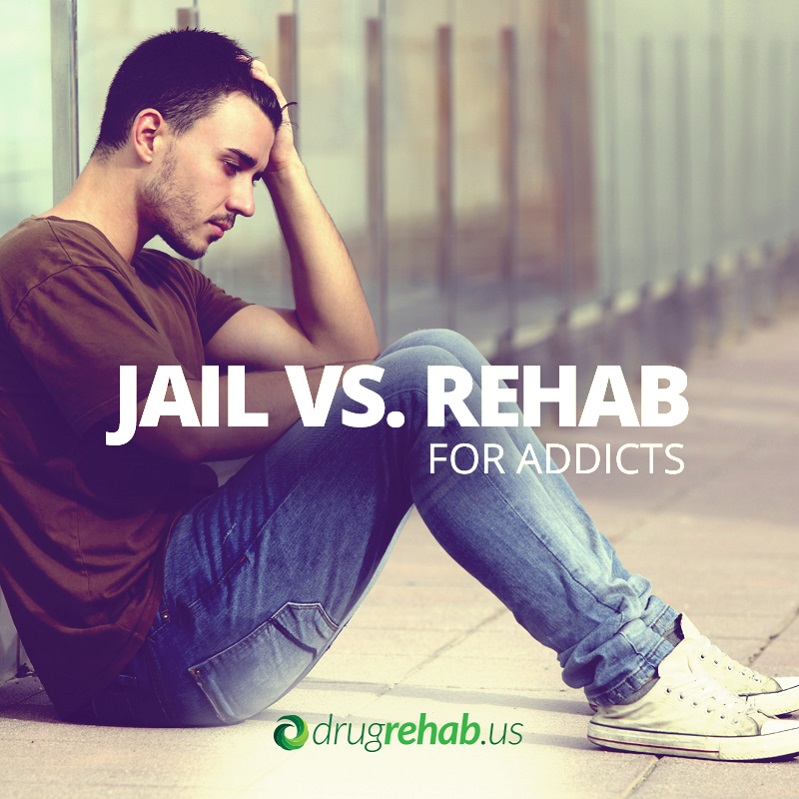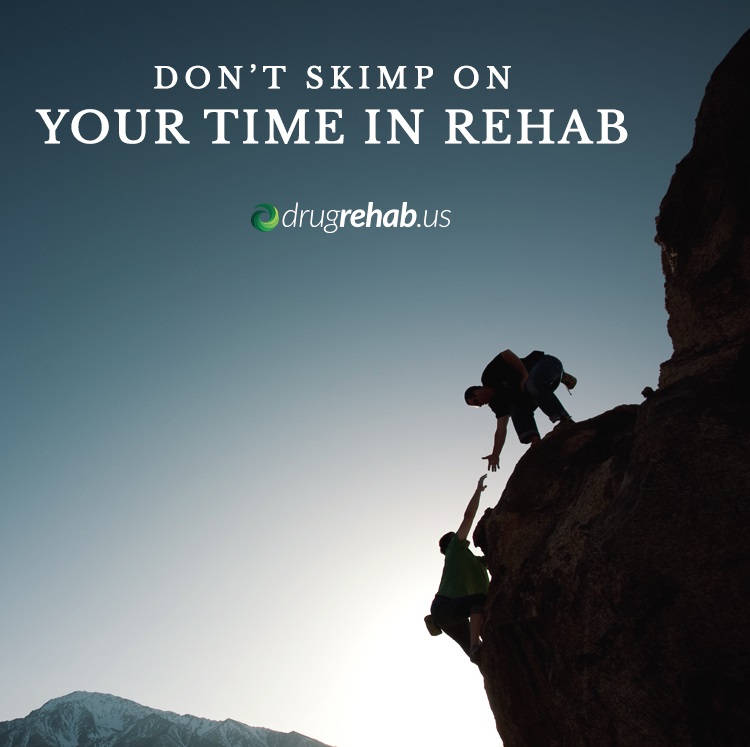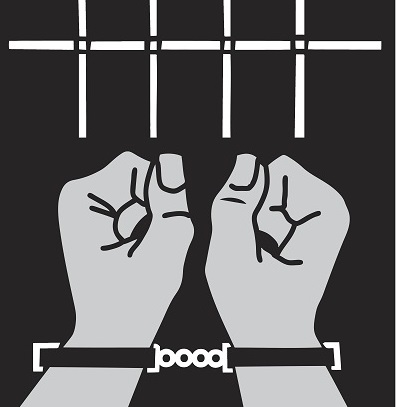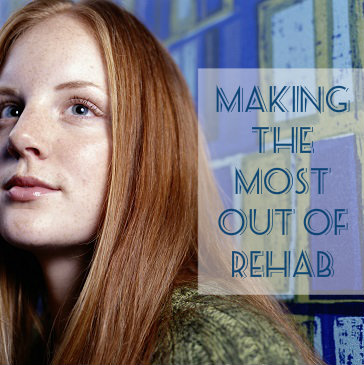Any drug court that hopes to obtain federal funding will have to allow addicts access to drug replacement therapies for heroin and prescription opioid addiction, the U.S. government has ruled.
Treatment programs that practice abstinence-only therapies will still remain perfectly acceptable in most cases, but when doctors recommend drug maintenance as the best alternative for individual defendants, drug court judges will have to respect that opinion.
Changes In Addiction Rehab Policy
These changes in existing policy were announced in February by Michael Botticelli, director of the White House Office of National Drug Control Policy. Previously it had been left to the discretion of drug court judges to decide which types of rehabilitation and treatment were appropriate, and these institutions have a long history of rejecting drug replacement strategies. In Kentucky, there are signs posted outside drug courts instructing defendants in methadone or Suboxone maintenance programs to wean themselves off of these drugs before their court dates if they want to avoid being sent to prison.
Maintenance Programs More Effective Than Conventional Abstinence-Based Programs?
But the latest evidence strongly suggests drug maintenance programs, particularly those that rely on Suboxone as a replacement drug, are extremely useful and do an excellent job of helping opioid addicts stay away from the substances that endanger their lives. Abstinence-based treatments in general are more effective against alcoholism than against heroin and OxyContin addiction, which cause changes in the brain that can be incredibly difficult to overcome when relying on willpower alone.
 Studies show more than 90 percent of heroin and opioid painkiller addicts will relapse back into drug use within a year of conventional rehabilitation, with the majority dropping out of treatment programs before reaching the end. In some cases, this may show a lack of commitment, but it is still data that treatment centers cannot afford to ignore.
Studies show more than 90 percent of heroin and opioid painkiller addicts will relapse back into drug use within a year of conventional rehabilitation, with the majority dropping out of treatment programs before reaching the end. In some cases, this may show a lack of commitment, but it is still data that treatment centers cannot afford to ignore.
Even outside structured treatment programs, Suboxone is extremely popular with opioid addicts, so much so that a thriving underground market for the drug exists among those looking to self-medicate themselves out of their drug habits. But only 2.5 percent of physicians across the United States have gone through the certification process necessary to prescribe this maintenance medication, helping to repress the availability of the drug.
Most physicians and treatment experts don’t recommend Suboxone or methadone maintenance therapy for opioid addicts, preferring to stick with what they see as the tried-and-true methods of abstinence and the drug-free lifestyle. Substitution drugs go against the grain, maintaining a state of addiction despite their abilities to decrease cravings and reduce the opioid high.
But plenty of studies have verified the relative safety of drug maintenance therapy. At the present time, prescription opioid painkillers plus heroin overdose take the lives of about 25,000 Americans each and every year, and the number of victims has increased exponentially over the last 10 to 15 years. Relapse following unsuccessful treatment is a common killer in these cases, because opioid addicts who go back to using after a period of abstinence have reduced tolerance for drugs and can overdose easily if they take the same dosages they did in the past.
Benefits Of Drug Maintenance Therapies
The reliance of drug courts on abstinence-based rehabilitation is understandable, given the fact that drug maintenance therapy does replace one type of opioid addiction with another. But having one addiction kill the other can play a constructive healing role for desperate individuals who lack the capacity to beat their drug dependencies without extra help.
Willpower is an important part of any addiction recovery regime, and all addicts who plan to get better must make a determined effort to overcome the brain disease that plagues them. Opioid addicts undergo significant neurological changes that won’t go away overnight, however, and that is why drug maintenance can help bridge the gap between dependency and recovery.
Ideally, addicts who use methadone or Suboxone will eventually be able to wean themselves off of these substances under medical supervision. But until they do, these drugs can keep them alive, still in a position to win a battle against addiction that can so easily end in tragedy if intervention is unsuccessful.
Drug courts can provide a route to recovery for addicts only if they remain open to all possibilities, including those that may seem a bit outside the box. The new federal government policy may force their hand to a certain extent, but is will also help raise the consciousness of drug court judges who have a responsibility to keep up with the times.
Read Our Latest News Blogs
05 Mar 2015
Should I Go Back To Rehab?
Relapses are common for anyone struggling with a chronic disease, whether it is diabetes, high blood pressure, addiction or any other. By definition, a chronic illness is one that can’t be cured and requires continuous treatment. Not keeping up with treatment means risking a relapse. As an addict, this doesn’t mean that you always have to be in intensive therapy, but you need to be aware of your feelings, your moods and your cravings and up your treatment as necessary.
Factors To Consider When Deciding If You Should Go Back To Rehab
Whether you need to return to rehab after a relapse is a personal choice, but there are several factors anyone should consider.
Can You Afford Rehab?
 In a perfect world, your health care needs would come first and all other considerations would be secondary. The truth is you have to think about practical issues. Rehab isn’t like going to the doctor for a checkup or to change your prescription. It means taking time from work and family to spend weeks or months in a facility working on just you and your illness. Look at your finances, your health insurance if you have it, your job situation, and talk to your family. From this information you can determine if you can practically afford rehab for a second or third time.
In a perfect world, your health care needs would come first and all other considerations would be secondary. The truth is you have to think about practical issues. Rehab isn’t like going to the doctor for a checkup or to change your prescription. It means taking time from work and family to spend weeks or months in a facility working on just you and your illness. Look at your finances, your health insurance if you have it, your job situation, and talk to your family. From this information you can determine if you can practically afford rehab for a second or third time.
Consider Your Rehab Options
Another thing to think about is where you would go if you returned for another stay in rehab. Did you like the facility you went to previously? Was it helpful, or did you feel like you could have chosen better? Rehab can become a revolving door in a worst-case scenario with an addict going back again and again. There are many reasons this happens. Sometimes it is simply the nature of the disease, or the addict is not ready to give up drugs yet. In some cases it’s the facility that isn’t caring for patients well enough. Give careful thought to whether you would return to the same rehab program or try a new one before you make a choice.
Listen To Others
Sometimes the people around you are better able to judge your situation and your needs than you are. Listen to the people who care about you and who have been around you long enough to know when you need serious help and when you can pull through with their support. Also, listen to any health professionals with whom you are working at the moment. If you have been doing regular therapy sessions, talk to your therapist about it. If you have a sponsor, talk to her.
Get Some Kind Of Help
You may choose to go back to rehab or not, but whatever you decide, make sure that you do get help. A relapse can be serious and it can put you back on a dangerous path that you have worked hard to get away from. If you don’t want to or can’t go back to rehab, consider starting up some therapy sessions or increasing their frequency if you already work with a therapist from time to time. You can also turn to support groups. Join one if you haven’t already, or go back to attending meetings if you stopped.
The important thing after a relapse is to do something. Don’t just let it go and hope it was a one-time slip. Take it seriously. Talk to friends and family. Talk to a therapist. Reflect on your feelings and your sense of whether you can stop here or if you will keep using. Consider your options and then make a choice.
Find A Drug And Alcohol Rehab Facility Near You Now!
Long-Term Recovery Is Possible! Believe In Yourself – We Do!
15 Dec 2014
Jail vs. Rehab For Addicts
Millions of drug addicts are jailed every year in the U.S. In many of these cases, they are sentenced to jail time because of minor crimes such as possession or a third strike. Rehab vs. jail is an old debate, but one that is shifting. While the old way has been to jail addicts because they have committed crimes, advocates for addicts are changing attitudes. Jail is not a valid form of rehab and it should stop being used as such. Addicts do not come out of jail cured simply because access to drugs was restricted or cut off; it’s time to start getting addicts the help they truly need.
Can Jail Be Rehab?
 Philosophies of addiction treatment have long been punitive. Even with addicts who are not in trouble with the law, mainstream addiction care has often used punishment and tough love as a way to treat patients. This idea comes from a deep-seated belief that addiction is a moral failure and a personal weakness; that addicts have done something wrong because of an internal flaw and punishment is the way to correct it. This attitude is old and it is changing, but it still largely prevalent.
Philosophies of addiction treatment have long been punitive. Even with addicts who are not in trouble with the law, mainstream addiction care has often used punishment and tough love as a way to treat patients. This idea comes from a deep-seated belief that addiction is a moral failure and a personal weakness; that addicts have done something wrong because of an internal flaw and punishment is the way to correct it. This attitude is old and it is changing, but it still largely prevalent.
Because of this dated attitude, many addicts are sentenced to jail time instead of treatment in a rehab facility. Drug rehabilitation statistics refute this practice. Jail might work as effective rehab for a handful of addicts, but for most it simply doesn’t help. When a drug addict leaves prison, he is likely to start using again. Unless a jail or prison has a dedicated drug addiction treatment program, addicts will not be well served by spending time there.
Addicts Need Effective Treatment
No one would suggest that there should be no consequences for drug crimes, but jail time is not the most effective way to punish and rehabilitate addicts. Those convicted of minor and non-violent crimes could be sentenced to time spent in a treatment facility instead of prison. This would allow addicts to get the help they desperately need and would help them transform back to productive members of society who will be unlikely to break laws again.
One of the pros of recreational marijuana legalization that has recently been seen in Colorado and Washington is fewer drug users going to jail for minor crimes. There are a lot of real downsides to legalizing this drug, including possibly increased addiction rates, but if it means clearing prisons of non-violent drug offenders, it would be one positive outcome.
The debate over rehab vs. jail is one that should be officially closed. We know that prison time does not treat addicts and that no one is served well by jails overcrowded with minor offenders. Everyone would benefit, taxpayers and drug addicts alike, if we could send non-violent drug offenders to facilities for effective treatment.
Find Out For Yourself Or A Loved-One Which Therapy Will Work Best In – What Kind Of Addiction Therapy Do You Need? – And Break Free From Addiction Today!
01 Dec 2014
Don’t Skimp On Your Time In Rehab
Getting treatment for drug addiction is the only way to heal from this terrible disease. If you or a loved one is struggling with drug abuse, treatment guided by caring professionals is essential.
 It is also important to understand that the disease of addiction is chronic. Like other chronic diseases, high blood pressure and diabetes for instance, addiction needs continuous treatment over a lifetime. You can never be cured of your addiction, but you can learn to manage it.
It is also important to understand that the disease of addiction is chronic. Like other chronic diseases, high blood pressure and diabetes for instance, addiction needs continuous treatment over a lifetime. You can never be cured of your addiction, but you can learn to manage it.
If you are thinking of going to rehab, know that the time you spend there will set you on your path to lifelong sobriety. It is important to spend enough time during this initial phase of treatment learning how to live a sober life.
Whatever you do, don’t skimp on your time spent in a good and caring rehab facility. Research shows that the best outcomes result from at least 90 days spent in residential or intensive outpatient care.
Why You Should Consider A Long Stint In Rehab
Here are several reasons you should consider a long stint in a good rehab in order to heal:
- Get past detox – Detox, that time when drugs leave your system and you get beyond withdrawal, can last longer than you think. Detox is important, but by the time it’s done, you may find you have limited time to work on actual treatment if your stay in rehab is only 30 days. Going through detox is hard, but it isn’t the part of rehab that helps you learn to be sober.
- Learn new habits –Your addiction is a habit. Your brain has learned a habit of regular drug use. In order to change those habits and learn new ones, you need time. You are going to rehab to learn how to have an entirely new lifestyle. You must take your time on this or your new healthy habits will not take root.
- Heal your brain – Your drug use has caused actual changes in your brain. It is possible to reverse those changes, but it takes time. Research has shown that in brain scans of patients receiving treatment, positive changes are still occurring up to three months after starting treatment.
- Work on relationships – The main goal of rehab is to heal and to overcome your addiction, but there are many other things to work on if you have the time. Your addiction has probably wrecked several of your relationships, for instance. If you spend enough time in rehab, you can work on repairing those.
- Treat mental disorders – Many people who struggle with addiction are also battling mental illness, whether they know it or not. Spending enough time in rehab will give your treatment professionals a chance to diagnose and treat any co-occurring disorders. When you recognize and treat mental illness you have a better chance at being successful at sobriety and living a more enjoyable life.
- Step down treatment – If you can afford the time to do so, your rehab should be followed by a step down in care. This means going from residential rehab to a sober living house or to intensive outpatient care. Doing so allows you to begin to practice your new habits and skills while still having the support and treatment of caring professionals. Going cold turkey from rehab to real life can be a shock and may lead to relapse.
Long-Term Rehab For Life-Long Sobriety
Rehab is an important step toward becoming sober and you should not skimp on it. If you are able to take the time away from work and family, spend as much time in rehab and step down treatments as necessary to help you be successful in your new, sober lifestyle.
Discover How To Choose The Right Drug Rehab For Yourself Or Your Loved One!
10 Oct 2014
Jail Is Not A Form Of Rehab
For decades, the war on drugs in the U.S. has taken a hardline strategy. Addicts are treated like criminals rather than people with a serious illness. As attitudes begin to shift and research tells us more about the disease of addiction, many hope that drug policies will also change. The tough love idea that prison can cure an addict is no longer working in the rehab vs. jail debate.
Punishment As Rehabilitation
 A dominant philosophy of treatment for drug addiction has been one of punishment. Society has long viewed addicts as people with moral failings and natural weaknesses. The idea has been that in order to correct their poor choices, tough love and punishment are needed.
A dominant philosophy of treatment for drug addiction has been one of punishment. Society has long viewed addicts as people with moral failings and natural weaknesses. The idea has been that in order to correct their poor choices, tough love and punishment are needed.
Although the general attitude toward addiction as a disease to be treated with medical techniques has been growing, many addicts end up in prison. For too many addicts, a stint in prison, or more than one, is the only type of rehab they receive.
Prison exists for several reasons. The main point of incarceration is to punish. It also exists to remove offenders from society. Finally, prison is supposed to rehabilitate inmates, even those that are not addicts. The time spent in jail is to be productive and to prepare inmates for re-entry into society as contributing members. Unfortunately, jails and prisons have largely failed at this last goal. How can they be expected to be facilities that will successfully treat drug addicts?
True Drug Rehabilitation
Drug rehabilitation statistics tell us that the punishment model simply doesn’t work, and neither does using jail as a form of drug rehab. Real rehab means using a combination of evidence-based techniques that are individualized for each patient. Trained professionals should lead the techniques. Therapy, counseling, group support and medications where appropriate are the tools of drug and alcohol addiction rehab. Evidence from modern research tells us that these are the methods that work, not punishment.
True drug rehab can take many different forms. The important thing is that it should conform to the needs of an individual. Rehab can mean spending weeks to months working intensively in a residential facility. It can also mean working in therapy groups while still living at home, or simply attending 12-Step support groups and using self-help techniques to stay sober.
The most important factors, as demonstrated by drug rehab success rates, are that rehab methods are based on evidence and that the overall program is individualized. When an addict receives this type of treatment from caring professionals, he stands a real chance of getting well again. Jail is no place for an addict. It simply doesn’t work as rehab and it only increases the odds of an addict getting in trouble with the law again.
30 Sep 2014
Does Drug Rehab Work?
Drug rehab success statistics are difficult to measure. One reason is that addiction is a chronic disease. With any chronic disease you can expect to relapse and to need some type of treatment over an entire lifetime. Addiction is not like an acute sickness that can be treated once and cured. If you struggle with a drug addiction, rehab will help you, but you have to recognize that it does not represent a cure for your illness. What rehab can do is guide you onto a path of lifelong sobriety that you will work on for the rest of your life.
Rehab Information And FAQs
Learn more about rehab information and rehab FAQs.
What Do They Do In Rehab?
 Rehab is short for rehabilitation and it refers to a program of treatment that will help you learn how to get sober and how to stay sober once you leave treatment. Rehab includes detoxifying the body and working through the inevitable withdrawal symptoms. Once you have completed detox you can expect to progress through a treatment plan devised by you and experienced addiction and health professionals.
Rehab is short for rehabilitation and it refers to a program of treatment that will help you learn how to get sober and how to stay sober once you leave treatment. Rehab includes detoxifying the body and working through the inevitable withdrawal symptoms. Once you have completed detox you can expect to progress through a treatment plan devised by you and experienced addiction and health professionals.
Treatment in rehab includes individual therapy, family therapy, support groups and group therapy as well as supplemental activities such as art therapy, exercise, meditation and other holistic practices. You may also be treated with medication while in rehab. You can also expect to learn about living your new sober life outside of rehab and coping mechanisms to help you resist urges to relapse.
What Makes Rehab Successful?
Although it’s hard to say that rehab works for everyone, it does help most addicts get clean. The most successful drug rehab programs are those that create individualized treatment plans. Everyone is different and one plan will not work for everyone. Rehab also works when there are experienced, trained and committed professionals working to help you. Finally, successful drug rehab includes a commitment and hard work from you, the client. When you put in the time and the effort to get well again, you can expect that rehab will work for you.
Life After Rehab
Because addiction is a chronic disease, you have to remember that rehab is not the end of your treatment. People who think that rehab doesn’t work are often misinformed and expect to be cured by the end of their stay. A good rehab program will teach you how to be successful after you leave rehab. This often means continuing with some type of therapy and possibly attending support group meetings and working with a sponsor.
As with any chronic illness, like diabetes or high blood pressure, your addiction may relapse after rehab. That doesn’t mean that rehab didn’t work. It simply means that you need continuing care and treatment. Don’t consider a relapse a defeat. It’s just a wake-up call letting you know that you need to get back to therapy or some other type of treatment. Keep working hard toward sobriety and you will be able to live with and manage your disease.
Get The Know How On Additional, Important Drug Rehab FAQs
01 Sep 2014
What Kind Of Addiction Therapy Do You Need?
Addiction is a complex disease that starts in the brain and affects the entire body. It includes components of mental and physical health and requires an individualized treatment plan that addresses all the patient’s needs. A complete program of treatment for addiction should include some type of therapy or counseling, but with so many options available, it can be confusing. Learn about therapy and what it means for addiction to be sure you are getting the kind of treatment you need in order to heal.
Addiction Therapy Types
Individualized Treatment For Addiction
The first and most important thing to realize when getting treatment for your addiction is that the most effective plans are individualized. Addiction is both complex and personal. Everyone is different and responds differently to treatment approaches. Make sure that the therapist, counselor or rehab facility you work with will take this into account and has a philosophy of individualizing care.
Outpatient vs. Residential Therapy
 Receiving therapy on an outpatient basis means that you can stay at home and visit your treatment center at convenient times. This option works well for people who need to continue going to work and who have a strong support network at home. If your addiction is severe and you have no one to support you in your sobriety, you might want to consider getting therapy in a residential setting. This means staying overnight for a period of a week or up to several months in a facility dedicated to addiction treatment. Both types of care will allow you to get the therapy you need, but one may be better suited to your needs than the other.
Receiving therapy on an outpatient basis means that you can stay at home and visit your treatment center at convenient times. This option works well for people who need to continue going to work and who have a strong support network at home. If your addiction is severe and you have no one to support you in your sobriety, you might want to consider getting therapy in a residential setting. This means staying overnight for a period of a week or up to several months in a facility dedicated to addiction treatment. Both types of care will allow you to get the therapy you need, but one may be better suited to your needs than the other.
Cognitive-Behavioral Therapy
The type of therapy that you are most likely to encounter while being treated for addiction is called cognitive-behavioral therapy, or CBT. A therapist practicing CBT will help you to learn what prompts your drug use or drinking. CBT helps you to recognize these motivations and teaches you how to change your substance abuse behaviors. CBT is sometimes also combined with a type of therapy called mindfulness. This means learning how to be more aware of your mood, your physical symptoms and external factors so that you can recognize triggers and avoid relapsing and using drugs or alcohol after a period of sobriety.
Group Therapy And Support
Another important component of treatment for addiction is social therapy. When you can work with other addicts, people who understand what you are going through, your treatment becomes more powerful. Group therapy sessions are common in residential rehab facilities, but you can find groups to attend on an outpatient basis. The experience of sharing your struggles in a safe environment, and learning from others, is powerful and can advance your healing. The support of these other people can lead to lifelong relationships that help you to stay sober.
Family Therapy
Addiction often starts at home; working with your family as you go through therapy can be helpful. If members of your family are willing, a therapist will work with you as a group and consider the family as a system with its own special dynamics. Being able to open up with your family and getting to the root of some of your issues is not always comfortable, but it can go a long way toward helping you get and stay sober.
Therapy is an essential component of addiction treatment and one that you should consider carefully. If you have no idea where to start, let your physician refer you to a good therapist. From there you can plan your course of treatment, decide whether you need a residential facility and begin to work toward your goal of recovery.
Ready To Begin Addiction Therapy? Call Us Now To Learn More
28 Aug 2014
How To Make The Most Out Of Rehab
Overcoming addiction is one of the biggest challenges that many people face. With dedication, support and the treatment administered by caring professionals in a rehab facility, all addicts have the ability to get clean and to learn to stay sober over the long term. Going through a successful drug rehab program takes effort on the part of the caregivers and the addict. If you are considering getting into rehab to treat your addiction, make the most of it in order to be successful.
 What Happens In Drug Rehab?
What Happens In Drug Rehab?
Start by learning what will happen when you enter a rehab facility. By being prepared ahead of time, you will give yourself a head start in the process of getting well. As you search for a facility for your care, hopefully with the support of a loved one, ask questions about what will happen when you enter treatment. Most likely you can expect to go through a detox and then get one-on-one counseling as well as participate in group therapy and support sessions. Beyond these basics, different facilities may use different activities and will operate based on different philosophies. Find out what those are before you start your treatment program.
Maintain A Positive Attitude While In Rehab
Going through rehab will be hard work. At times it will feel like you are failing, but when you keep your attitude positive, you will be more likely to succeed. Enter the process understanding that there will be ups and downs, but prepared to work hard for your sobriety and your healing. Remember that the first part, your detox, will be the hardest part, but that it will get easier from there. What happens during detox is that the drugs and alcohol leave your body and you feel sick as a result. When the withdrawal symptoms fade, you will be feeling better and ready to make it through your treatment.
Keep Up A Support System After Leaving Rehab
Having a support system is one of the best ways to ensure your success at getting and staying sober. No one can do this alone, and, once you leave treatment, your professional caregivers will no longer be there for you every day. Make sure you have at least one or two friends or family members willing to support you through this process. Involve these people as much as you can during rehab. If they are allowed to visit or participate, encourage them to do so. Words of encouragement for someone in rehab can make a world of difference, as can the support of loved ones afterward.
Drug rehab success rates statistics tell us that most addicts will relapse at some point after treatment. This does not mean that rehab was a failure, but it may mean that you need a tune up. Sometimes, making the most of the process means going back to try again and to get more help. Just remember to stay positive, to keep your support system around you and to not get discouraged by a small setback.
Learn More About Repairing Broken Relationships While In Rehab – Is Rehab The Time To Fix Relationships Or Just Yourself?
Call Us Now To Learn More About Drug Rehab – We Are Here For You…You Are Worth It.


